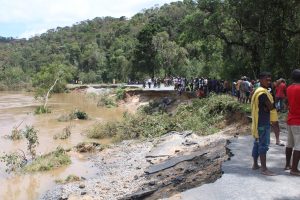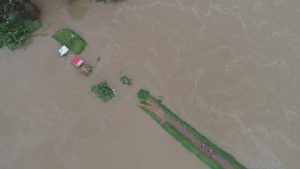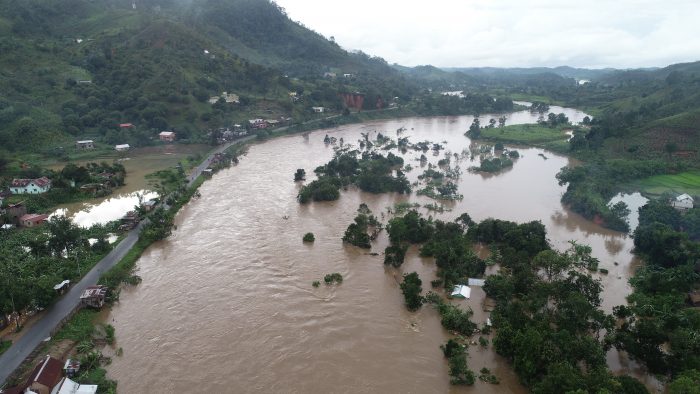After Cyclone Emnati, SBU’s Wright seeks donations to feed people in Madagascar
Stony Brook University distinguished professor and award-winning scientist Patricia Wright has been traveling back and forth to Madagascar for over 34 years to study the charismatic lemurs on the island nation off the southeastern coast of Africa.

Recently, Wright was in Madagascar when Tropical Cyclone Emnati struck the nation, tearing roofs from homes, destroying crops and polluting drinking water.
“The actual howling of the wind was very eerie,” said Wright in an interview a few days after returning from Madagascar. “The river is right beneath the station and it was scary to watch it go from white water rapids, into roiling coffee-colored water. Every 15 minutes, you could notice a difference” in the flooded waters.
Wright, her daughter Amanda Wright Poston, who is a project manager with the Woodwell Climate Research Center, and PhD candidate Amanda Rowe are seeking donations through WISE Tropics.
Created in 2020, WISE Tropics, which stands for Wright’s Institute for Science & Environment, has numerous goals, including saving lemurs, planting new rainforests and helping people in Madagascar and other tropical countries that have high biodiversity and high poverty.
In response to Tropical Cyclone Emnati, which is the fourth cyclone to hit Madagascar this year, WISE Tropics is trying to raise $20,000 from donors to provide food for people whose crops were destroyed by
the storm.
“People are displaced from their homes and they are really hungry,” Wright said. “The crops are gone: they are washed away.”
Wright said she hoped to buy as many as 100 bags of 50 kilograms of rice, plus beans, sugar and salt that could support communities around Ranomofana National Park, which provides the nearby setting for research through Stony Brook’s Centre ValBio.
She hopes to raise enough money that she can provide additional food every two weeks for the next two months.
A week after Emnati, residents of Madagascar were also struggling with contaminated drinking water, which was causing diarrhea.
Wright said she hasn’t seen this level of devastation to Madagascar in about a decade.

She hopes Long Islanders support those struggling after a spate of storms disrupted their lives and threatened their futures.
“Long Islanders are very generous when it comes to donating for disasters,” Wright said. “We had Sandy ourselves. We can make this island to island connection.”
Wildlife on Madagascar, like endangered lemurs, are often able to survive during natural disasters.
Lemurs move close to the center of trees and lower down to avoid the strong winds, Wright described. While she has seen lemurs who died amid storms, many survive by finding natural protection.
Wright recognizes that the number of crisis points in the world has grown, with refugees and survivors leaving their homes in Ukraine amid Russia’s armed attack and amid flooding in parts of Australia.
One of the lessons she’s learned from working with people in Madagascar amid past disasters is that donations sometimes meet the immediate need but don’t always provide enough sustained support.
Origins of WISE
Amanda Poston said they established WISE Tropics to give donors who wanted to give 100% of their gifts directly to specific efforts.
“We created this so we could really have them participate in these on-the-ground projects,” Poston said.
Before the cyclones hit, donors had contributed to reforestation efforts and lemur research, which is at the heart of what Patricia Wright studies.
“People who are interested in Ranomofana and have a connection to Madagascar are able to help” through these donations, Poston said.
WISE Tropics has almost no overhead, which means that donations go directly to the intended recipients.
At this point, the need to help the Malagasy people get food and shelter is high, as the island nation recovers from storms that have closed off roads and demolished bridges.
Poston, who spent a good part of her childhood in Madagascar, said the Malagasy “respect [her mother] and are amazed at her continuous contributions to their country.”







